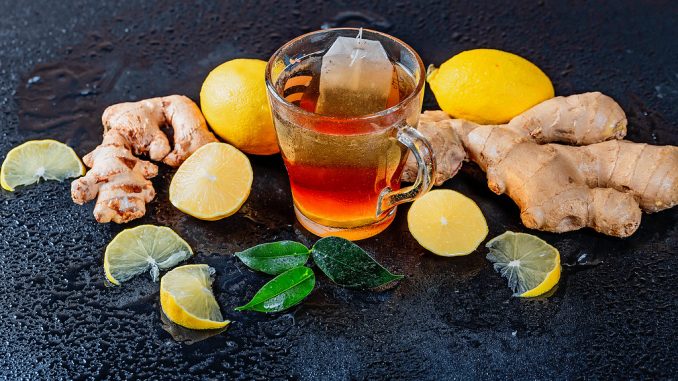
Ginger has become a popular ingredient in our cuisine, although due to its strong odor and fragrant taste, it does not necessarily appeal to everyone.
Ginger is extremely easy to consume, it can be added both in cakes, as well as in entrées, salads, sauces, smoothies, juices, meat or vegetable foods, in soups, and the correct dosage of its quantity can add a special taste to our preparations.
The benefits of ginger
Preferably, it should be consumed as raw as possible, possibly marinated, or pickled in oriental style in rice vinegar, to keep the persistence of its strong antioxidants – gingerol, shogaol and tingerol, but also the persistence of vitamin B6.
Ginger is effective in alleviating gastrointestinal symptoms and problems. Because it inhibits the condition of nausea and even vomiting, it is effective in treating motion and sea-sickness, being recommended even to pregnant women. In addition, it has a carminative effect, eliminating intestinal gas, and a spasmolytic intestinal effect, relaxing and calming the intestinal tract.
Ginger with honey and citrus fruits, especially lemon, is a wonderful cocktail against sore throat, laryngitis and gout.
Ginger is also recommended in the rheumatic diet, due to its anti-inflammatory effect and is considered to be effective in osteoarthritis (arthrosis) or rheumatoid arthritis, and by the vasodilating effect, it activates the peripheral blood circulation, eliminating the symptoms of cold hands and feet.
In addition, like any root, ginger is a good source of minerals such as potassium, magnesium, copper, manganese.
Gingerol, a substance with strong medicinal properties
Ginger belongs to the family Zingiberaceae and is closely related to turmeric and cardamom. The rhizome (underground stem) is the part commonly used as a spice. It is often called the ginger root.
Let’s not forget that ginger has a very long history in terms of its use in various forms of alternative / traditional medicine. It has been used to aid digestion, reduce the feeling of nausea and fight against flu and colds.
Ginger can be used fresh, dried, in the form of powder or as oil or juice and is sometimes added to certain foods and cosmetics.
The unique aroma and fragrance of ginger comes from its natural oils, the most important of which is gingerol. It is good to know that gingerol is the main bioactive ingredient in ginger, responsible for many of its medicinal properties. Gingerol has strong anti-inflammatory and antioxidant effects.
Here are some of the other benefits of ginger root
- Ginger can treat many forms of nausea, especially morning nausea – In addition, ginger can relieve nausea and vomiting after surgery, as well as for patients undergoing chemotherapy. In addition, it is the most effective remedy when it comes to nausea associated with pregnancy, such as morning sickness.
- Ginger can reduce pain and muscle sensitivity – It has been shown to be an effective remedy for muscle soreness caused by physical exercise. One study showed that by consuming 2 grams of ginger a day for 11 days, muscle pain was significantly reduced in people who exercised regularily.
- Anti-inflammatory effects can help in those suffering from osteoarthritis (osteoarthritis). In a controlled research, performed on 247 people with gonarthrosis, patients who received ginger extract had less pain and needed less pain medication.
- Ginger may treat chronic indigestion – Dyspepsia or chronic indigestion is characterized by recurrent pain and discomfort in the upper stomach. Delayed emptying of the stomach is thought to be a major contributing factor to indigestion.



Leave a Reply